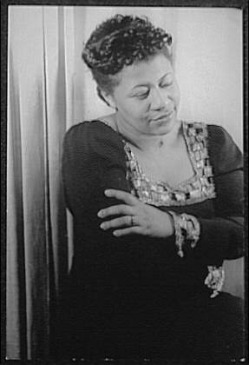Motivation

Not only was Ella Fitzgerald a woman, but she was an African-American woman, so most odds were set against her in the times she was growing up. When she began acting out as a result of her mother's death, she was sent to reform school where she was beaten, just because she was black. She eventually escaped but became homeless. Discouraging events made her strive to prove that she was more than she appeared. She tried to enter contests to sing at different venues, but all of her attempts were in vain, until she won a chance to sing at The Apollo Theater, where she met her life-long friend Benny Carter. He introduced her to well-connected people; in fact you could say he launched her career. Another very important person who influenced her was Chick Webb. He hired her as a singer in his band, and when he died, the band became hers. He had a great influence on her musical career. When she was on tour, Fitzgerald's manager, Norman, would not accept any kind of racial discrimination from restaurants, hotels, or concert halls where they performed. This was particularly difficult when they toured in the deep South. This taught Fitzgerald to stand up for herself and have respect for others as well as herself.
In the time that Ella Fitzgerald's music became very popular, there were few female jazz singers. Ella had to not only overcome racial discrimination but also defy the "stay-at-home" woman stereotype of the 1940's and 50's. She had an amazing career, while most women did not have a career at all. She became known as "The First Lady of Jazz" because there were many men who came before her, but she was the first truly successful Jazz musician who was a woman.
African Americans, of course, could vote by that time, but only men, so she was always excluded from voting until the 19th amendment had been passed in 1920. All of the reasons above are the reasons Ella Fitzgerald changed the standards for musicians, women, and African-Americans alike.
